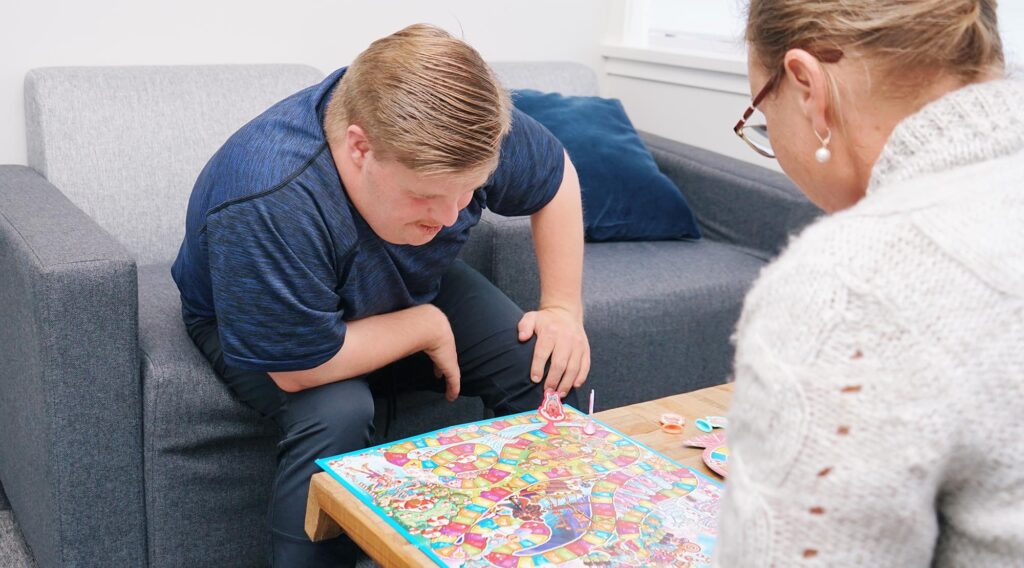If you’ve ever cared for an aging or sick family member, you likely know first hand that it’s a labour of love. Though it can be a deeply supportive and enriching experience for the one receiving care, the constant demands can take a serious toll on the caregiver’s mental, physical and emotional health over time. Because it’s so natural for the caregiver to get caught up in the care of their loved one, they may easily wind up putting themselves last – leading to some serious burnout and fatigue.
Caregiver fatigue is a very real and common symptom of putting a loved one’s needs before their own. This is why at Crossroads Collective, we offer support to caregivers through our Respite Care program. Respite care creates an opportunity for caregivers to receive a temporary “break” from their responsibilities, so they can tend to other facets of their life. This being the members of their family, their mental and physical health, and most importantly – their identity outside of being a caregiver. If you or someone in your family has experienced the burnout that comes with caring for another, read on to learn how Respite Services can help.
Respite reduces stress.
It’s no question, caring for a loved one can be a stressful process. There’s a long list of demands that require your constant attention and balancing those demands with your own personal responsibilities can feel like a lot. While a certain amount of healthy stress can be okay, it’s important to recognize when it’s becoming too overwhelming for the caregiver. When the demands of caring for another start to overwhelm and overpower your own needs, it can lead to missed work, financial hardship, a compromised immune system, and a disruptive sleep cycle.
When all of these stressors are combined and lack a healthy balance of support, one can reach a state of burnout pretty quickly. Respite services can help alleviate the load of some of these stressors by providing the necessary breaks required to regroup and feel some temporary relief.
Restoring a sense of identity.
Caring for a loved one can quickly become a full-time job. Because of the constant reliance on the caregiver, it can be easy for the one giving the care to lose themselves in the other. The consistent need to show up for the other person can create a feeling of a loss of purpose, as though their only meaning to life is taking care of the one in need.
This is why it is so important in these situations that both the caregiver and the loved one maintain a healthy sense of identity – this way they may both maintain some sense of independence and sovereignty in life!
Receiving respite care creates a healthy sense of space between the one giving and the one receiving care, creating an opportunity for both to engage in who they are outside of each other.
Improves family relationships.
When a loved one in the family needs immediate support and care, often other relationships within a family can go on the back burner. Though it’s understandable at the time, when the bulk of the attention is going towards one person, it can create a sense of tension and disharmony within other members of the family.
Children may start to feel like they aren’t getting the attention and care that they need, or the caregiver’s partner may start to feel like they hardly exist. Receiving respite care can drastically improve the dynamics of a family unit, creating more space for togetherness while alleviating some of the emotional baggage that comes from the caretaking itself.
The few hours your loved one is receiving companionship could mean more time for dinner as a family, or a daily excursion together that wouldn’t otherwise be possible!
A sense of companionship.
Just as much as respite care can benefit a family, it is also extremely beneficial for the loved one in need! When an elder needs immediate attention 24/7 around the clock, it can take a serious toll on their emotional and mental health. Experiencing an illness or the loss of independence can seriously affect a patient’s wellbeing, especially if they are receiving that care from a daughter or son. Having the support of another caregiver in the process can offer a patient the opportunity to connect with someone new and enjoy their company. It can also help to create a sense of normalcy and routine which in turn gives the patient something to look forward to each week!

Caring for a loved one is no easy feat. It takes an incredible amount of time, energy, patience, and compassion. It also requires that your cup is full so that there is enough energy to give to all the areas of your life, not simply the one in need of care. What’s important to remember is that turning to respite services does not mean that your loved one is a burden. It simply means that the support is there to alleviate some of the stress and added daily pressures, so you can live a life that is yours.
Do you think your family could benefit from our respite services? We are here to support you and your loved one in each step of the journey. Contact us today to learn more about this service and to get in touch with one of our behavioural technicians.

